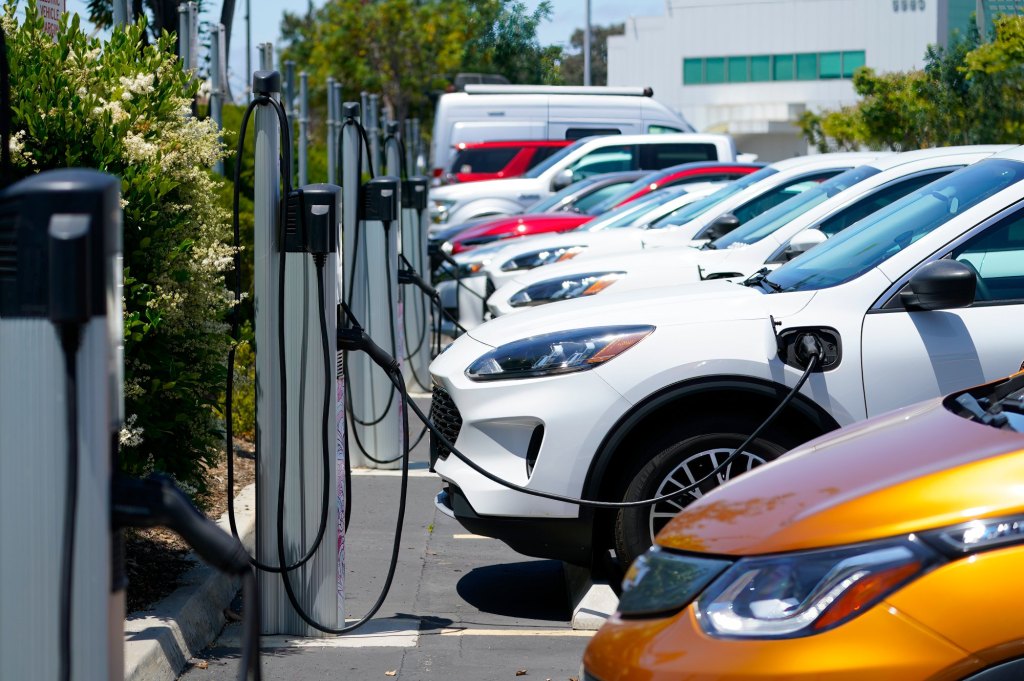As I navigate my new life in California, there is a question that echoes in my mind. There’s a subtle, almost reflexive sympathy that surfaces from California natives when I mention my home state of Arkansas. It’s a quiet acknowledgment, as if I’ve survived some hardship and finally reached a haven.
I can’t entirely knock this sentiment since California’s reputation as a beacon of progress and opportunity is largely earned. It is, by many metrics, one of the nation’s leading states.
Yet as a newcomer who has experienced a starkly different civic landscape, I’ve perceived a troubling undercurrent: A willingness among some Californians to dismantle the very structures that make this state exceptional.
The litany of criticisms is familiar — negativity that seems to originate far beyond California’s borders but somehow latches within. Issues like homelessness, gas prices, public transit, the cost of living and the efficacy of state government are relentlessly portrayed as unique, catastrophic failings. The narrative suggests California is a “hellscape” where businesses cannot thrive and citizens suffer under uniquely oppressive conditions.
Problems aren’t unique
However, a crucial piece of perspective is often missing: These problems, while significant, are not exclusive to California. The sheer size of the state amplifies their perceived magnitude here and, in my view, by a persistent smear campaign. One that many Californians seem to be internalizing.
Take homelessness, a deeply complex and visible crisis. Yes, it is a significant problem in California’s urban centers. But California is also one of the few states actively, if imperfectly, attempting to address it with substantial resources and a multi-pronged approach that includes housing initiatives and support services.
In Arkansas, the response is often a shrug of administrative shoulders, a “good luck” or, more disconcertingly, the criminalization of poverty. There, the problem is less visible not because it’s smaller proportionally, but because it’s often swept under the rug or into the correctional system.
The perennial complaint about high gas prices often ignores the deliberate policy choices behind them. California’s specialized fuel blend, while costlier, is a critical component of its efforts to combat air pollution in densely populated basins.
This commitment to environmental quality is further underscored by the state’s unparalleled electric vehicle infrastructure, support programs and adoption rates. It offers a stark contrast to states where fossil fuel interests often dictate policy with little regard for long-term ecological consequences.
Public transit, another frequent target of criticism, is a marvel from my perspective. While the high-speed rail project has faced undeniable setbacks, exacerbated by global events like the COVID-19 pandemic, the vision persists. More importantly, California possesses a functioning, diverse transit ecosystem encompassing subways, light rail, extensive bus networks and dedicated bike paths.
In Arkansas, comprehensive public transit is largely a foreign concept, often limited to university towns sharing minimal services with the wider populace. The idea of a state-level strategic transit plan is almost unimaginable.
The high cost of living is an undeniable reality.
However, this is intrinsically linked to California’s economic dynamism, desirability and the high demand for its quality of life, amenities and progressive social environment. While the housing crisis requires urgent and innovative solutions, the “low cost of living” in states like Arkansas often comes with significant trade-offs: lower wages, fewer economic opportunities, a dearth of specialized services and a less robust social safety net.
It’s a classic case of getting what you pay for, or perhaps, what you collectively invest in.
Frankly, it was the perception of state government that compelled me to write this.
Many Californians appear remarkably quick to criticize Gov. Gavin Newsom and the broader state apparatus, seemingly unaware of what genuinely “bad” governance entails.
There’s a pervasive readiness to vote against the very policies and leadership that have cultivated the state’s defining advantages: its robust safety nets, comprehensive social programs and commitment to environmental preservation and public access.
The legalization of cannabis, the staunch defense of reproductive rights, the preservation of public coastlines — these are not accidental outcomes. They are the direct result of a progressive, albeit imperfect, state government that actively legislates to protect and enhance the lives of its citizens.
Ignore propaganda
My governor was Sarah Huckabee Sanders. Yes, that one.
Arkansas voted for her instead of a nuclear engineering and urban planning doctorate — who was also religious.
After living under a state government often characterized by inaction, regression or outright hostility to such progressive values, California’s governance is a relative model of responsiveness and foresight.
Do not let externally crafted propaganda and internal frustrations, however valid some may be, blind you to the substantial, hard-won progress California represents.
The problems are real, but the foundational structures and the political will to address them are more robust here than in many other parts of the country. Cherish that. Engage critically, demand improvement, but do not be so easily convinced to tear down a framework that, for all its flaws, still stands as a comparative bastion of progress in a nation facing profound challenges.
You may or may not know how good you have it, but you’re close to finding out what “bad” truly looks like.
DeAndre Evans, an Arkansas native and San Diego-based software engineer, wrote this column for CalMatters.
